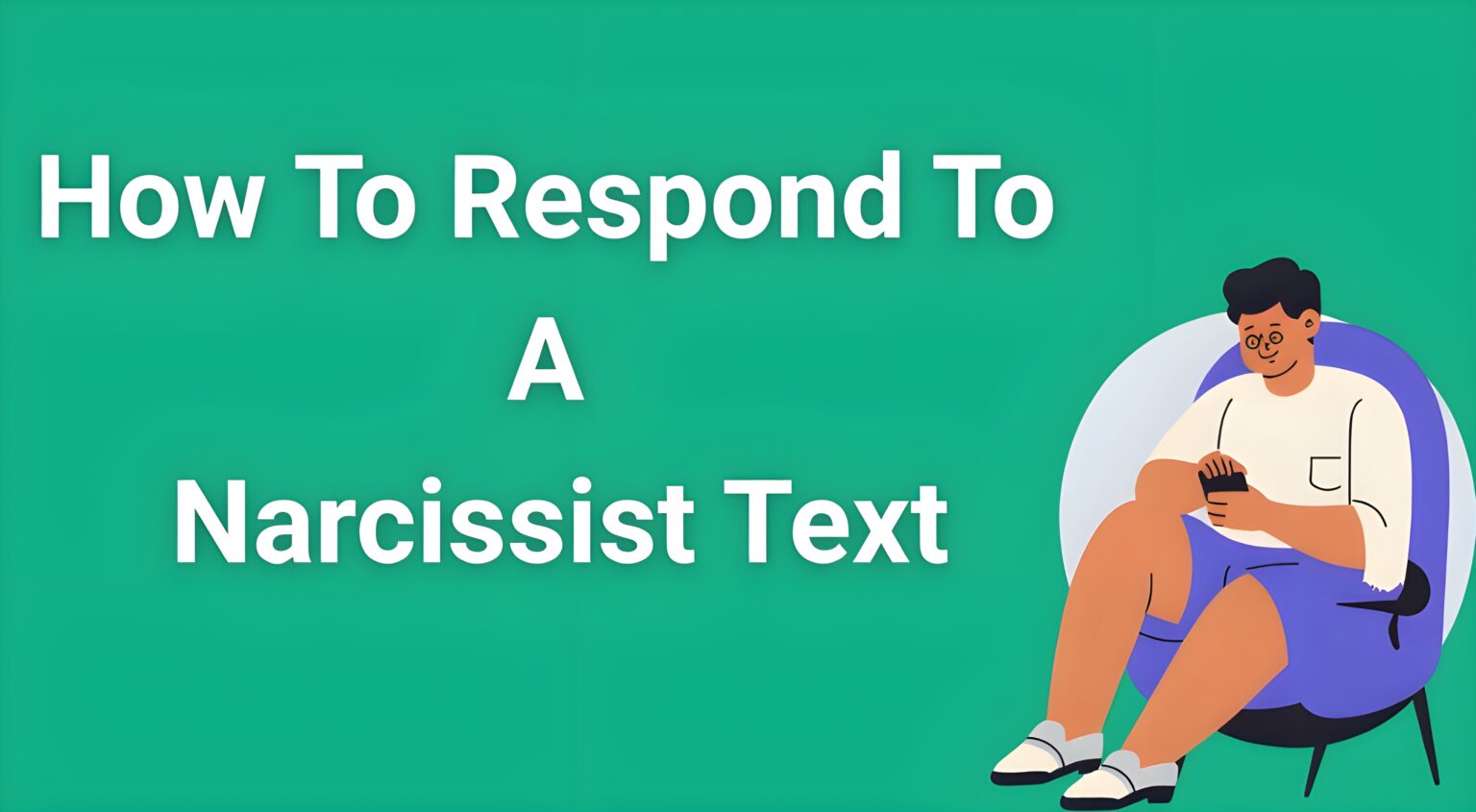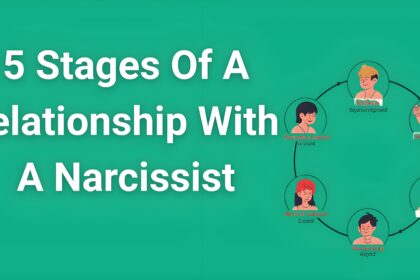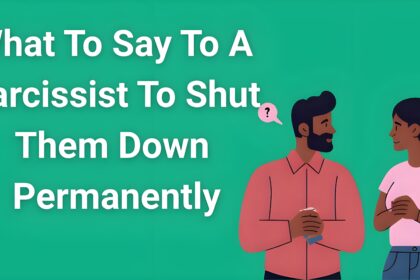That dreaded ping from your phone. You glance down and see their name on your screen. Your heart races, your palms sweat, and you already know this text message is going to ruin your day. Learning how to respond to a narcissist text isn’t just about communication—it’s about protecting your sanity, setting boundaries, and reclaiming control over your emotional wellbeing.
- Understanding Narcissistic Text Manipulation Tactics
- The Psychology Behind Effective Narcissist Text Responses
- 15 Powerful Phrases for Narcissist Text Responses
- Advanced Strategies: The Grey Rock Method via Text
- When NOT to Respond to Narcissist Texts
- Protecting Yourself: Technical Boundaries
- Building Your Support System
- The Emotional Toll and Recovery
- Recognizing Your Progress
- Co-Parenting Considerations
- Moving Forward: Life Beyond Reactive Responses
- Frequently Asked Questions
- Conclusion
Whether it’s an ex-partner, family member, coworker, or friend, narcissistic individuals weaponize text messages to manipulate, control, and maintain power over their targets. But here’s what they don’t want you to know: you have more control than you think. The right response strategy can neutralize their manipulation tactics and protect your peace of mind.
Understanding Narcissistic Text Manipulation Tactics
Before diving into how to respond to a narcissist text, it’s crucial to recognize their common messaging patterns. Narcissists use several predictable strategies through text communication:
Love Bombing Texts: Overwhelming you with excessive praise and affection to regain control after conflict. These messages might say things like “You’re the only one who understands me” or “I can’t live without you.”
Guilt-Tripping Messages: Designed to make you feel responsible for their emotions or actions. Examples include “You’re hurting me by ignoring me” or “After everything I’ve done for you…”
Gaslighting Through Text: Making you question your memory or perception of events. They might text “That never happened” or “You’re being too sensitive.”
Silent Treatment: Suddenly going radio silent to create anxiety and make you chase their attention.
Rage Texts: Explosive, all-caps messages designed to intimidate and overwhelm you emotionally.
Hoovering Attempts: Trying to suck you back into their orbit with seemingly vulnerable or apologetic messages.
Understanding these patterns is the first step in learning effective narcissist text responses that protect rather than enable their behavior.
The Psychology Behind Effective Narcissist Text Responses
When you know how to respond to a narcissist text appropriately, you’re essentially cutting off their narcissistic supply—the attention, emotional reaction, and drama they crave. Narcissists rely on getting big emotional responses from their targets. When you respond calmly and strategically, you remove their power source.
Dr. Vanessa Kennedy, Ph.D., director of psychology at Driftwood Recovery, explains that narcissistic text messages often leave recipients feeling “dismissed, invalidated, upset and even traumatized.” However, the right response strategy can break this cycle and protect your mental health.
The key is responding from a place of strength rather than emotional reactivity. Every text response should serve your wellbeing, not feed their manipulation tactics.
15 Powerful Phrases for Narcissist Text Responses
1. “I understand you have a different perspective.”
When to use: After they’ve made accusations or tried to rewrite history.
Why it works: This phrase acknowledges their viewpoint without agreeing or arguing. It sets the boundary that multiple perspectives can exist simultaneously. You’re not taking the bait to defend yourself or prove them wrong.
Example scenario: They text: “You always overreact to everything I say.” Your response: “I understand you have a different perspective.”
2. “I need some time to think about this.”
When to use: When they’re pressuring you for an immediate response or decision.
Why it works: This phrase gives you space and control over the timing of communication. It prevents impulsive responses that you might regret later. Narcissists hate losing control over timing, but this boundary protects your emotional state.
3. “That’s not acceptable to me.”
When to use: When they’ve crossed a clear boundary or made inappropriate comments.
Why it works: This is a firm boundary statement that doesn’t require justification or explanation. You’re not arguing about whether their behavior was wrong—you’re simply stating it doesn’t work for you.
4. “I can’t discuss this right now.”
When to use: When you’re feeling overwhelmed or triggered by their message.
Why it works: This protects your emotional wellbeing while maintaining some communication. It’s not a permanent shutdown, but it gives you the space you need to respond thoughtfully rather than reactively.
5. “Moving forward, I need…”
When to use: When setting expectations for future communication.
Why it works: This phrase focuses on solutions and boundaries rather than past grievances. It establishes clear expectations without getting drawn into historical arguments about who did what to whom.
Example: “Moving forward, I need our conversations to focus on co-parenting logistics only.”
6. “I won’t be responding to messages like this.”
When to use: When they send abusive, manipulative, or inappropriate texts.
Why it works: This sets a clear consequence for their behavior. You’re not engaging with the content of their message, but you’re establishing what type of communication you will and won’t accept.
7. “Received.”
When to use: When they need to know you got important information but you don’t want to engage further.
Why it works: This is pure grey rock technique—acknowledging receipt without providing any emotional content they can latch onto or manipulate. It’s professional and neutral.
8. “I’ll get back to you when I can.”
When to use: When they’re demanding immediate attention or responses.
Why it works: This maintains your autonomy over your time and attention. You’re not being rude, but you’re also not allowing them to control your schedule or create artificial urgency.
9. “That doesn’t match my experience.”
When to use: When they’re trying to gaslight you about past events.
Why it works: This response validates your own reality without getting into a detailed argument about what happened. You’re not trying to convince them—you’re simply stating your truth.
10. “I’m not available for that conversation.”
When to use: When they’re trying to drag you into arguments, drama, or inappropriate topics.
Why it works: This phrase treats certain topics as off-limits rather than engaging with the content. It’s particularly useful for maintaining boundaries around relationship drama or family conflicts.
11. “Please respect my boundaries.”
When to use: When they continue messaging after you’ve asked for space.
Why it works: This is a direct boundary statement that clarifies your expectations. It’s not mean or aggressive, but it’s firm and clear about what you need.
12. “I understand this is important to you.”
When to use: When they’re having emotional outbursts or making dramatic declarations.
Why it works: This acknowledges their feelings without taking responsibility for managing them. You’re showing you heard them without getting pulled into their emotional storm.
13. “Let me know if there’s anything urgent.”
When to use: When establishing limited contact parameters.
Why it works: This keeps the door open for truly important matters while signaling that casual conversation isn’t welcome. It’s particularly useful for co-parenting situations or family relationships you can’t completely cut off.
14. “I need to end this conversation.”
When to use: When discussions become circular, abusive, or unproductive.
Why it works: This is a firm boundary that prioritizes your wellbeing over their need for continued engagement. You’re not asking permission—you’re stating what you need to do.
15. No response at all.
When to use: When engaging would only feed their drama or when there’s nothing constructive to be gained.
Why it works: Sometimes the most powerful response to a narcissist text is no response at all. This denies them the attention and reaction they’re seeking. Complete silence can be more effective than any words.
Advanced Strategies: The Grey Rock Method via Text
The grey rock technique involves becoming as uninteresting and non-reactive as possible when forced to interact with narcissistic individuals. When applied to text messaging, this means:
- Keep responses extremely brief
- Stick to facts only
- Avoid emotional language
- Don’t share personal information
- Respond with minimal detail
Examples of grey rock text responses:
- “Ok”
- “Noted”
- “Will do”
- “Thanks for letting me know”
- “Got it”
This method works because narcissists feed on emotional reactions. When you become boring and unresponsive to their provocations, they often lose interest and move on to other targets.
When NOT to Respond to Narcissist Texts
Sometimes the best response to a narcissist text is no response at all. Consider not responding when:
- They’re clearly trying to provoke an argument
- The message is abusive or threatening
- They’re love-bombing after you’ve set boundaries
- The text is designed to create drama
- You’re feeling too emotional to respond calmly
- They’re trying to hoover you back after no contact
Remember: you are not obligated to respond to every text message you receive, especially when those messages are designed to manipulate or harm you.
Protecting Yourself: Technical Boundaries
Beyond knowing how to respond to a narcissist text, consider these technical boundaries:
Muting Notifications: Turn off notifications for their messages so you can read and respond on your terms, not theirs.
Screenshot Documentation: Keep records of abusive or threatening messages, especially if you’re dealing with legal issues or need evidence of harassment.
Using Do Not Disturb: Set specific hours when you won’t receive any messages, protecting your sleep and personal time.
Blocking When Appropriate: Don’t hesitate to block numbers if the person poses no legitimate reason for contact.
Building Your Support System
Dealing with narcissistic text manipulation can feel isolating and confusing. Building a strong support system is crucial for maintaining perspective and emotional health. Sometimes professional guidance can provide the clarity you need to break free from these toxic communication patterns.
If you find yourself constantly second-guessing your reality or struggling to recognize manipulation tactics, a specialized assessment can help you understand exactly what you’re dealing with. Our Narcissistic Abuse Clarity Report provides expert analysis of your specific situation, helping you identify manipulation patterns and develop personalized protection strategies.
For those trapped in trauma bonds—that addictive cycle that keeps pulling you back despite knowing better—structured recovery approaches can be life-changing. The 30-Day Trauma Bond Recovery Workbook offers a science-based system for breaking these psychological chains that willpower alone can’t overcome.
The Emotional Toll and Recovery
Learning how to respond to a narcissist text is more than just communication strategy—it’s part of healing from psychological abuse. Many survivors report feeling anxious every time they receive a message, constantly walking on eggshells, or feeling responsible for managing someone else’s emotions.
These responses are normal reactions to abnormal treatment. Your nervous system has learned to expect manipulation, gaslighting, and emotional attacks. Recovery involves retraining your nervous system to recognize safety and rebuild your confidence in your own perceptions.
If you’re still living with or unable to leave a narcissistic person, remember that you can still protect your mental health through strategic communication. Sometimes small steps toward boundary-setting can create significant changes in your daily experience while you work toward larger solutions.
Recognizing Your Progress
As you practice these response strategies, you might notice several positive changes:
- Feeling less anxious when your phone pings
- Maintaining emotional equilibrium during conversations
- Feeling more confident in your responses
- Experiencing less guilt about setting boundaries
- Sleeping better without constant text drama
- Focusing more on your own life and goals
These changes indicate that you’re successfully reclaiming your power and protecting your peace. Each boundary you maintain is a victory, even if it doesn’t feel dramatic in the moment.
Co-Parenting Considerations
If you’re co-parenting with someone who uses narcissistic text tactics, special considerations apply. Your responses need to protect both you and your children while maintaining necessary communication about parenting logistics.
Effective co-parenting responses focus strictly on child-related matters:
- “I need this information about [child’s name]’s schedule by [specific date].”
- “Please confirm pickup time for [day].”
- “[Child’s name] has a doctor’s appointment on [date] at [time].”
Avoid getting drawn into relationship discussions, past grievances, or personal attacks. Document everything and consider using court-approved co-parenting apps that create automatic records of all communication.
Moving Forward: Life Beyond Reactive Responses
The ultimate goal of learning how to respond to a narcissist text isn’t just managing their behavior—it’s reclaiming your life. As you become more skilled at these responses, you’ll likely find that:
- The texts become less frequent
- Their attempts at manipulation become less effective
- You feel more confident and self-assured
- Your relationships with healthy people improve
- You have more energy for positive activities
Remember, you cannot control their behavior, but you can control your responses. Every time you choose a strategic, boundaried response over an emotional reaction, you’re choosing your wellbeing over their manipulation.
Frequently Asked Questions
Q: What if ignoring their texts makes them angrier?
A: This is a common concern, but remember that you cannot control their emotions or reactions. Responding to angry texts with more engagement typically escalates rather than resolves conflicts. If you’re concerned about safety, document the messages and consider involving appropriate authorities.
Q: Should I explain why I’m setting boundaries?
A: Generally, no. Narcissistic individuals often use your explanations as opportunities to argue, manipulate, or find workarounds. Simple, direct statements work better than detailed justifications.
Q: How do I know if their apology text is genuine?
A: Look for specific acknowledgment of harmful behaviors, taking responsibility without excuses, and consistent changed behavior over time. Be wary of apologies that blame others, make excuses, or immediately ask for forgiveness and second chances.
Q: What if we work together and I can’t avoid texting?
A: Maintain professional boundaries by keeping all communication work-related, using formal language, and c
opying supervisors or HR when appropriate. Document any inappropriate workplace messages.
Q: How long should I wait before responding?
A: There’s no magic number, but responding when you feel calm and clear-headed is more important than timing. Sometimes waiting 24 hours can provide valuable perspective.
Q: What if they threaten to hurt themselves if I don’t respond?
A: Threats of self-harm require professional intervention, not your emotional caretaking. Contact appropriate emergency services or mental health crisis lines. Don’t let threats of self-harm manipulate you into unhealthy communication patterns.
Conclusion
Learning how to respond to a narcissist text is a crucial skill for protecting your mental health and maintaining your sense of reality. The 15 powerful phrases and strategies outlined here provide you with concrete tools for managing these challenging interactions while preserving your emotional wellbeing.
Remember that healing from narcissistic abuse takes time, and each small boundary you set contributes to your overall recovery. You deserve relationships based on mutual respect, honest communication, and genuine care for your wellbeing. Every strategic response to manipulative texts is a step toward reclaiming your peace and building a healthier future.
The power to change your experience lies in your responses, not in hoping they’ll change their behavior. By implementing these strategies consistently, you’ll find yourself feeling more confident, less reactive, and better protected from the emotional chaos that narcissistic individuals try to create.
Your wellbeing matters. Your boundaries matter. And your healing journey—no matter where you are in the process—matters more than managing someone else’s manipulative communication patterns.






